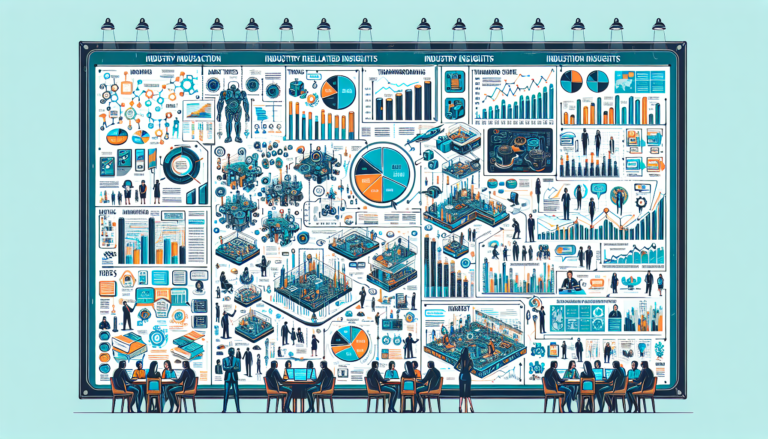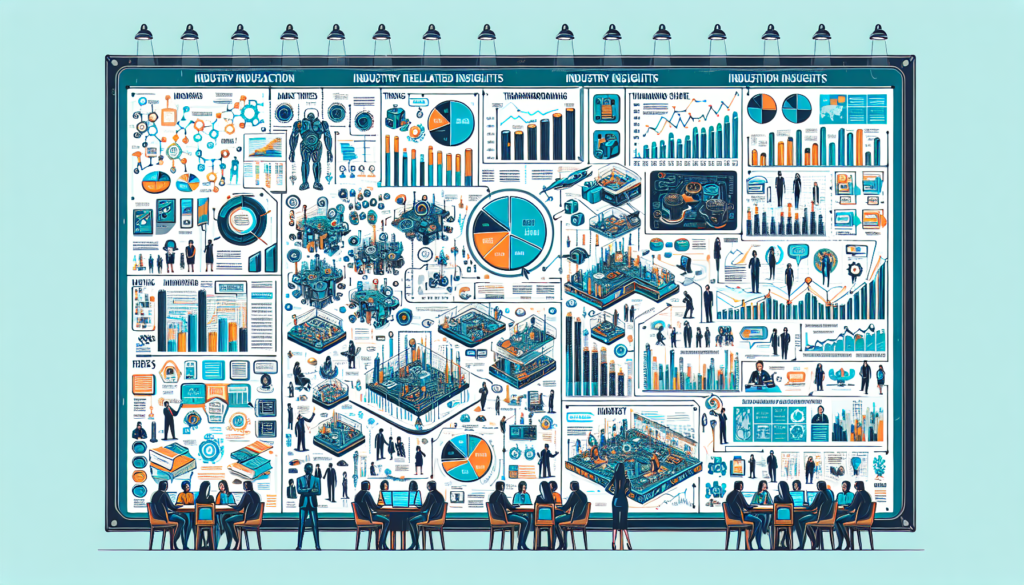Understanding Machine Learning in the AI Landscape
Machine learning is a subset of artificial intelligence (AI) that focuses on the development of algorithms that allow computers to learn from and make predictions based on data. Unlike traditional programming, where explicit instructions are given, machine learning systems improve their performance as they are exposed to more data. This capability has opened new doors in various industries, making technologies smarter and more efficient.
At its core, machine learning relies on statistical techniques to identify patterns and make decisions. This ability to learn from experience means machines can adapt to new information without human intervention. The rise of big data has significantly contributed to the growth of machine learning, as vast amounts of data can now be processed to generate insights that were previously unattainable.
The Role of Big Data in Machine Learning
Big data refers to the massive volumes of structured and unstructured data generated every second. As businesses and organizations harness this data, machine learning becomes essential in extracting meaningful insights. The synergy between big data and machine learning leads to innovations in predictive analytics, personalized marketing, and customer service automation.
Organizations can analyze consumer behavior patterns through machine learning algorithms that sift through vast datasets. This analysis helps companies tailor their offerings to meet customer needs, improving satisfaction and loyalty. For example, e-commerce giants use machine learning to recommend products based on past purchases, browsing history, and even social media engagement. This level of personalization not only enhances user experience but also drives sales.
Transforming Industries: Healthcare and Machine Learning
The healthcare industry is one of the most significant beneficiaries of machine learning advancements. From diagnostics to treatment plans, machine learning algorithms are transforming how medical professionals deliver care. By analyzing patient data, machine learning can identify trends that may indicate the onset of diseases, enabling earlier interventions.
For instance, machine learning models can analyze medical imaging data to detect anomalies such as tumors or fractures. These systems can often outperform human radiologists, providing quicker and more accurate diagnoses. Additionally, machine learning is instrumental in drug discovery, where vast datasets can be analyzed to identify potential compounds for new medications.
Moreover, personalized medicine has become a reality due to machine learning. Algorithms can analyze a patient’s genetic profile alongside their medical history to recommend tailored treatment options. This shift towards individualized care not only improves patient outcomes but also optimizes treatment efficiency.
Machine Learning in Financial Services
The financial sector is experiencing a significant transformation driven by machine learning. From fraud detection to risk assessment, machine learning algorithms are redefining how financial institutions operate. By analyzing transaction patterns and identifying anomalies, machine learning systems can flag potentially fraudulent activities in real time, significantly reducing losses.
Credit scoring is another area where machine learning shines. Traditional credit scoring models rely on a limited set of criteria, often leaving many deserving borrowers without access to credit. Machine learning expands this scope by considering a broader range of factors, enabling a more accurate assessment of an individual’s creditworthiness.
Furthermore, algorithmic trading has become increasingly popular in the finance world. Machine learning models analyze market data and execute trades at speeds and frequencies beyond human capability. This allows traders to make data-driven decisions and maximize profits while minimizing risks.
Enhancing Customer Experience with Machine Learning
Customer experience is at the heart of successful businesses, and machine learning is revolutionizing how companies interact with their customers. By leveraging data, businesses can gain insights into customer preferences and behaviors, allowing for more targeted marketing and improved service delivery.
Chatbots and virtual assistants powered by machine learning are becoming commonplace in customer service. These AI-driven tools can handle inquiries, provide product recommendations, and resolve issues without human intervention, offering 24/7 support. As they learn from interactions, these systems continuously improve their responses, providing a more seamless experience for customers.
Additionally, machine learning algorithms can analyze customer feedback to identify trends and areas for improvement. Companies can use this information to refine their products and services, enhancing overall satisfaction and fostering brand loyalty.
The Impact of Machine Learning on Manufacturing
Manufacturing processes are increasingly becoming more efficient and less wasteful due to machine learning. Predictive maintenance is one of the most transformative applications of machine learning in the industry. By analyzing data from machinery and equipment, algorithms can predict when a machine is likely to fail, allowing for timely maintenance and minimizing downtime.
Moreover, machine learning can optimize supply chain management. By analyzing historical data and current market trends, companies can make informed decisions about inventory levels and production schedules. This leads to reduced costs and improved resource allocation, ultimately enhancing profitability.
Quality control is another area where machine learning proves invaluable. Advanced computer vision systems can analyze products on the production line, identifying defects and ensuring that only high-quality items reach consumers. This level of automation not only improves quality but also speeds up the production process.
Challenges and Ethical Considerations in Machine Learning
Despite its potential, the widespread adoption of machine learning comes with challenges and ethical considerations. One significant concern is the issue of bias in algorithms. Machine learning models are only as good as the data they are trained on. If the training data is biased or unrepresentative, the resulting algorithms can perpetuate and even exacerbate existing inequalities.
Transparency is another critical issue. As machine learning models become more complex, understanding how they arrive at specific decisions becomes increasingly challenging. This lack of transparency can lead to mistrust among users, particularly in sensitive areas such as healthcare and finance.
Data privacy is also a pressing concern. With machine learning relying heavily on data, ensuring that personal information is protected is paramount. Companies must adhere to strict regulations and ethical guidelines to safeguard user data and maintain public trust.
The Future of Machine Learning and Innovation
As we look to the future, the potential for machine learning to drive innovation is immense. The technology continues to evolve, with advancements in deep learning and neural networks enabling even more sophisticated applications. As research progresses, we can expect to see machine learning impacting various fields, from autonomous vehicles to smart cities.
In the realm of autonomous vehicles, machine learning is crucial for interpreting sensor data and making split-second decisions. As these technologies mature, we may witness a significant reduction in traffic accidents and improved transportation efficiency.
Smart cities, powered by machine learning, will enhance urban living by optimizing resources and services. From traffic management to energy consumption, machine learning can help create sustainable, efficient environments that cater to the needs of residents.
Furthermore, as machine learning tools become more accessible, small businesses and startups can leverage these technologies to compete with larger corporations. This democratization of technology will foster innovation across industries, driving economic growth and job creation.
Ultimately, the AI revolution led by machine learning is not just about technological advancements; it is about reshaping how we live, work, and interact with the world. As the landscape continues to evolve, embracing these changes will be essential for organizations and individuals alike to thrive in the future.














